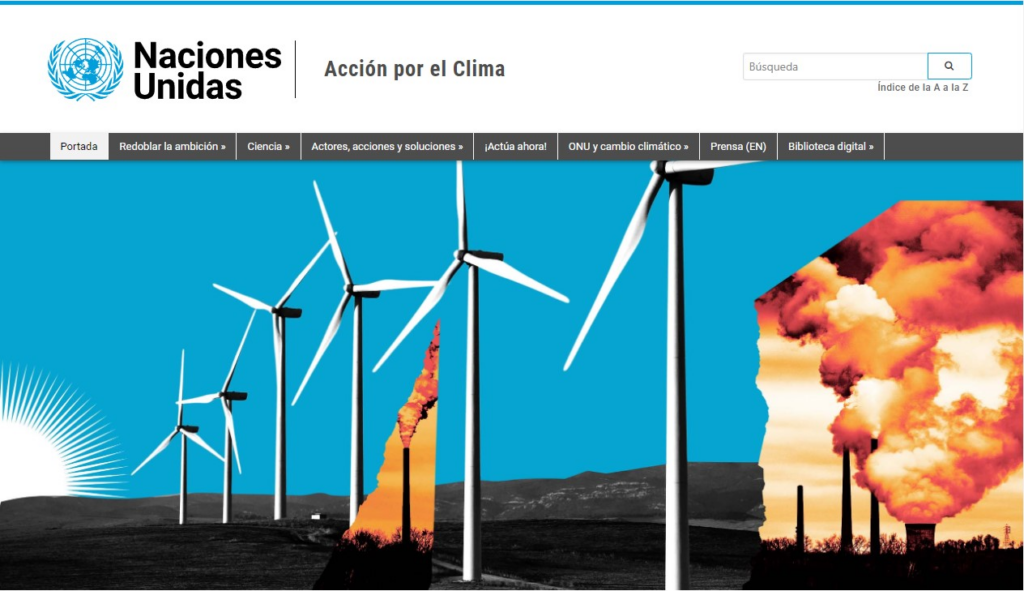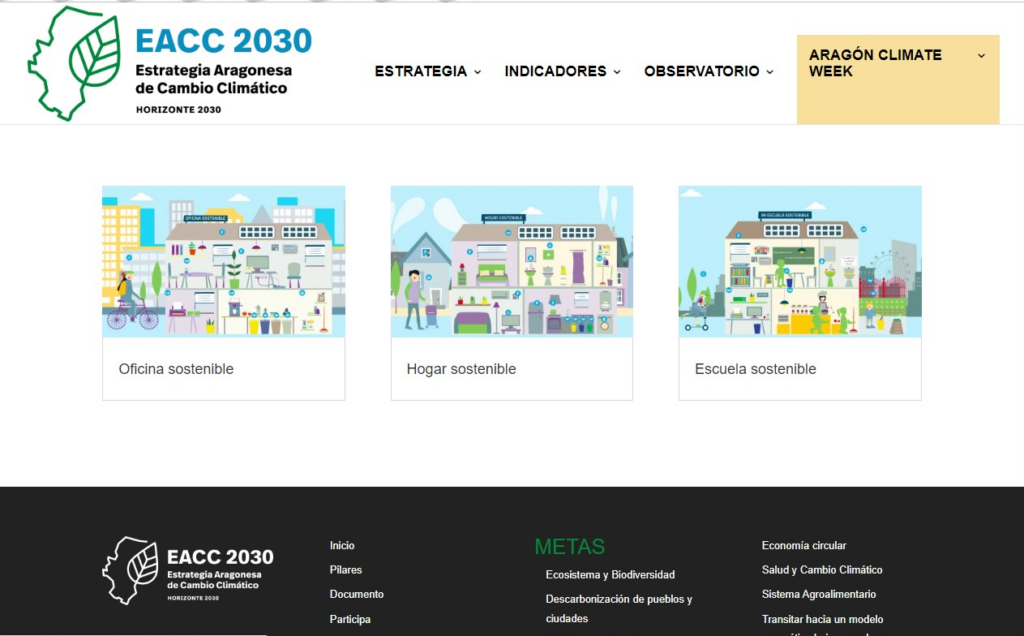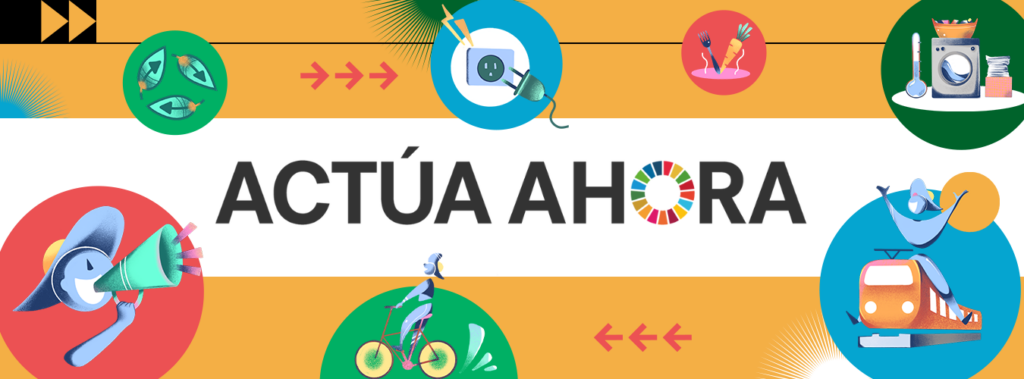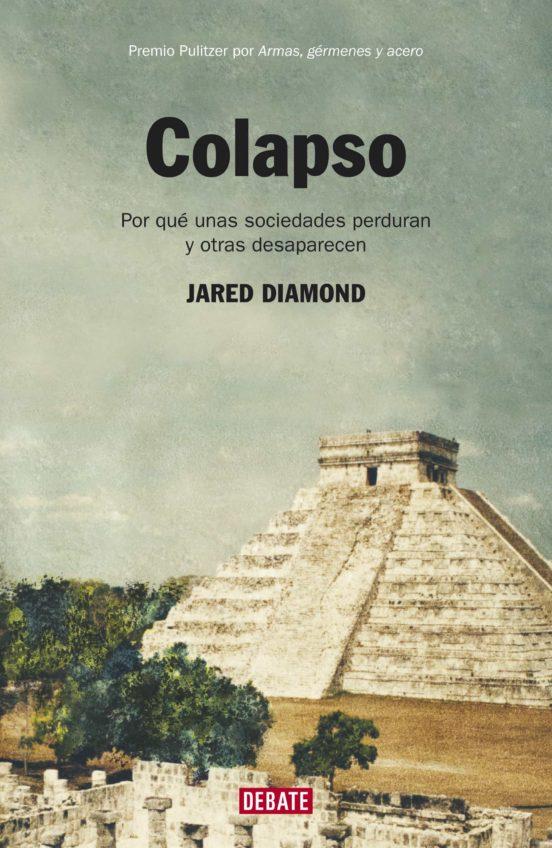Esta entrada también está disponible en: Aragonés Català Español Français English
Long live global warming!
I’ve bought a thousand plastic bottles and I’m throwing them away unopened to buy more. Why? It turns out that I have been told that with global warming some coastal cities could be flooded when the sea level rises and I got very excited: I want the coast to be flooded so I can have a beach in Aragon!
I’m already imagining it: every day after school, swimming with friends. The parties on the beach would be a great success. It would be brown all year round. Maybe the Mediterranean coast would have disappeared and we wouldn’t be able to go on holiday there any more, but we wouldn’t need to because we’d have a beach right here!
It’s also true that my friend Montse would have nowhere to live because she’s from Salou and her village would be underwater.
It is also true that maybe the Monegros desert would have spread all over Aragon, but, anyway, it would be enough to switch to crops that grow well in the desert. Surely many things are grown in the desert, right? Now that it comes to my mind: would there still be peaches from Calanda?
What would really annoy me is skiing. Without snow, things would be really bad, maybe we could invent a system to slide down the slopes with some kind of carpet or cardboard like a sledge. Although the truth is that I’m finding it a bit lame…
I’m going to give it some thought, to see if in the end it’s going to be better to recycle like there’s no tomorrow, because I love skiing, I love peaches and I want to keep going to Salou to spend the summer.
Did you know that there is an Aragonese Strategy against climate change? Below you will find out what it consists of.
Description
The International Day against Climate Change is celebrated on 24 October. This date, established by the United Nations, highlights an issue that is of paramount importance for the future of the whole of humanity. Climate change is one of the greatest challenges of our time, as global warming changes weather patterns, wreaking havoc across the planet and threatening food production, among many other things.
Every heat wave or cold snap we experience outside the usual months, every forest fire that shocks and shocks us, torrential rains and prolonged droughts, among other extreme events, remind us that this is an urgent problem that concerns us all. In the United Nations 2030 Agenda, Goal 13, “Climate Action”, invites us to take action to combat climate change.
Further information:

The objectives and contents of this proposal can be related to
- World Water Day (22 March)
- World Environment Day (5 June)
- International Day to Combat Desertification and Drought (17 June)
In Aragon
The Aragonese Climate Change Strategy (EACC Horizon 2030) is a product of the adhesion of the Government of Aragon to the Climate Agreement reached at the Paris Summit in 2015. It is in line with the European and Spanish political priorities derived from the Agreement and the Sustainable Development Goals set out in the United Nations 2030 Agenda.
The Strategy sets out these objectives:
- Contribute to a 40% reduction in greenhouse gas emissions compared to 1990 levels.
- Reduce emissions from the diffuse sector by 26% compared to 2005.
- Increase the minimum contribution of renewables to 32% of total energy consumption.
- Integrate climate change policies at all levels of governance.
- Develop a low-carbon economy in terms of energy use and a circular economy in terms of resource use.
Further information:

A detail
To address the negative impacts of climate change, world leaders signed the Paris Agreement in December 2015. It was the culmination of the United Nations Climate Change Conference held in the French capital. It set binding, long-term targets to be met by all states:
- Substantially reduce greenhouse gas emissions to limit the global temperature increase this century to 2°C and strive to limit this increase to 1.5°C;
- review countries’ commitments every five years;
- provide funding to developing countries to enable them to mitigate climate change, strengthen resilience and improve their capacity to adapt to the impacts of climate change.
Short video on the Paris Agreement.
A reflection
Climate change is a global emergency that transcends borders, requiring coordinated solutions at all levels and international cooperation to move towards, among other things, a low-carbon economy. It is something that seriously compromises our future as a species. To deny all this scientifically proven reality is an exercise in irresponsibility and absolute blindness. Climate change denialist discourse deserves no credit.
The Intergovernmental Panel on Climate Change (IPCC) is a United Nations organization responsible for providing an objective and scientific opinion on climate change, its natural, political and economic impacts and risks, and possible response options. In 2007, the IPCC was awarded the Nobel Peace Prize with former US Vice-President Al Gore. A short video on the IPCC 2022 report.
Suggestions for teachers
This topic offers many possibilities as it has a very definite link with daily experience, with the environment, with consumption habits and daily attitudes. It is essential to make students aware of the importance of their role.
The UN suggests many activities for this purpose on several of its pages, through which one can browse and select tasks. For example (with a bias more identified with primary education but extendable to lower secondary education): ” Act now. Superheroes for climate action.”
This proposal is part of a broader spectrum within the “Make Change” campaign, more or less generic for the 17 Sustainable Development Goals, with recommendations such as the Lazy people’s guide to saving the world and with resources for students around the Sustainable Development Goals.

International conferences and meetings on climate change follow. For example, the United Nations Conference on Oceans was held in Lisbon at the end of June 2022.
Recommended reading: Collapse: why some companies persist and others disappear, from Jared Diamond (edited in Spain by Debate, 2005): synopsis and links with supplementary information at Collapse: How Societies Choose to Fail or Succeed (Wikipedia) . A selective reading by chapters can be suggested, as well as activities of attention, synthesis and reflection on the contents.

In the Aragonese sphere, news items such as this one (similar to others about ice masses worldwide), related to the loss of extension of Pyrenean glaciers, can be commented on.
You can also see the video of the Aragonese Climate Change Strategy: “Your actions help us achieve this: Take action!”
Throughout Secondary Education, the Aragonese curriculum incorporates elements related to sustainable development and the environment, as well as protection against emergencies and catastrophes, with one of its general methodological principles being the relationship with the social and natural environment and emphasising health education and environmental education.
Objectives that this proposal helps to achieve
ESO:
- To critically value social habits related to health, consumption, care for living beings and the environment, contributing to their conservation and improvement.
Baccalaureate:
- To know and critically assess the realities of the contemporary world, its historical background and the main factors of its evolution. Participate in a supportive way in the development and improvement of their social environment.
- To know and critically assessing the contribution of science and technology in changing living conditions, as well as strengthening sensitivity and respect for the environment.
Subjects with which it can be linked
- Biology and Geology / Geography and History / Ethical values (ESO, 1st and 2nd cycles)
- Economics (ESO, 2nd cycle)
- Baccalaureate: To be assigned according to modality. For example, Earth and Environmental Sciences
Development of competences
- Social and civic competences
